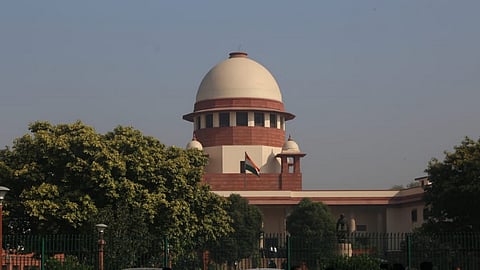

In a significant ruling, the Supreme Court Friday directed the Central Government to constitute a National Tribunals Commission to act as an independent body to supervise the appointments and functioning of Tribunals, as well as to conduct disciplinary proceedings against their members and to take care of the administrative and infrastructural needs of the Tribunals.
The Court further directed that till the National Tribunals Commission was constituted, a separate wing in the Ministry of Finance be established to cater to the requirements of the Tribunals.
A three-judge bench of Justices L Nageswara Rao, Hemant Gupta and S Ravindra Bhat was ruling on a batch of petitions challenging the validity of the Tribunal, Appellate Tribunal and other Authorities (Qualifications, Experience and other Conditions of Service of Members) Rules, 2020 (2020 Rules).
Though the bench did not strike down the rules, it read down or modified a few contentious portions pertaining to the composition of Search-cum-Selection Committees, manner of recommendation, tenure period of the chairman and vice-chairman etc.
It also expressed displeasure at the Centre for not implementing the directions of the Court.
"We have noticed a disturbing trend of the Government not implementing the directions issued by this Court. To ensure that the Tribunals should not function as another department under the control of the executive, repeated directions have been issued which have gone unheeded forcing the Petitioner to approach this Court time and again", the Court said.
The Court issued the directions as follows:
The Madras Bar Association (MBA), the lead petitioner, had challenged the 2020 Rules for violating the principle of separation of powers and the independence of the judiciary.
The MBA contended that the 2020 Rules posed a threat to the independence of the judiciary and to the effective and efficient administration of justice. It also alleged that the said Rules were in violation of the five-judge bench decision in Rojer Mathew v. South Indian Bank Ltd.
In the Rojer Mathew case, the Supreme Court had struck down the 2017 Rules which were framed under the provisions of the Finance Act, 2017. The issue of the passage of the Finance Act as money was referred to a larger bench and is still pending consideration.
http://theleaflet.in/wp-content/uploads/2020/11/16100_2020_35_1501_24869_Judgement_27-Nov-2020.pdf